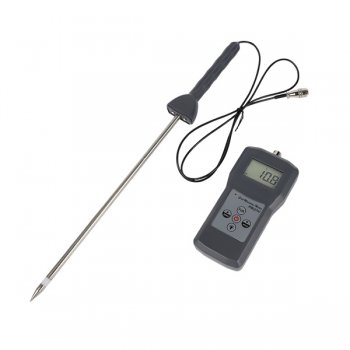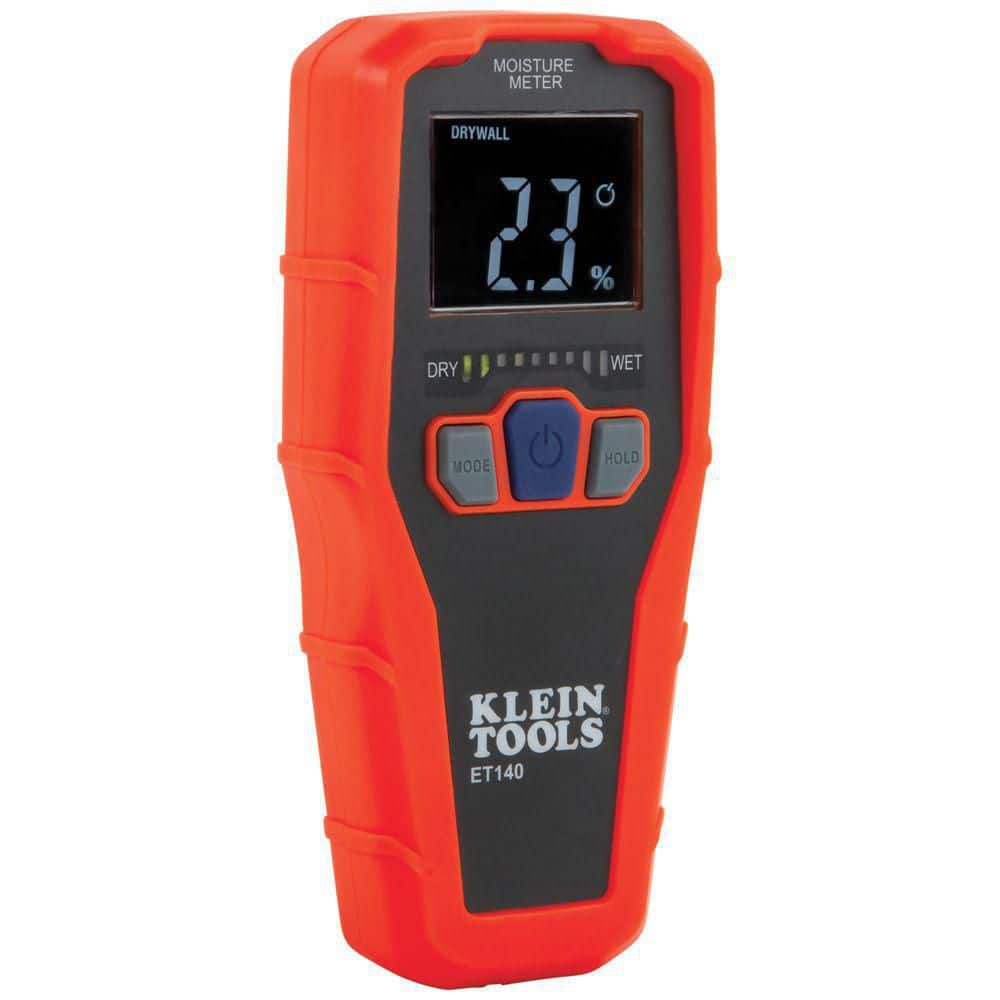Comprehending the Different Sorts Of Moisture Meters and Their Applications
The Ultimate Overview to Moisture Meters: A Comprehensive Summary and Just How They Can Save You Money
In the world of building upkeep, construction, and various sectors, the value of properly gauging moisture levels can not be overstated. Dampness meters function as important tools in identifying and checking moisture web content in products, aiding in avoiding expensive problems and making sure the top quality of products. Understanding the nuances of different sorts of dampness meters, their applications, and the prospective cost-saving advantages they use can be a game-changer for companies and specialists alike. Discovering just how these tools can not only improve processes but likewise add to financial cost savings is a journey worth getting started on.
Types of Moisture Meters
One typical type is the pin-type wetness meter, which measures the electric resistance in between two pins put right into a material. Pinless dampness meters, on the various other hand, usage electro-magnetic sensor plates to check a bigger area without triggering damages to the product's surface area.
Moreover, there are likewise specialty dampness meters developed for specific materials like dirt, grain, or hay. These meters offer precise wetness readings tailored to the one-of-a-kind residential or commercial properties of the product being examined. Infrared moisture meters determine the thermal residential or commercial properties of a product to identify its wetness content non-invasively, making them helpful for applications where pin or pinless meters might not appropriate. Recognizing the various kinds of wetness meters available can help industries pick the most ideal tool for their particular dampness measurement requirements.

Advantages of Utilizing Moisture Meters

Moreover, utilizing dampness meters can cause enhanced energy performance. By identifying areas with high dampness degrees, such as leaks or bad insulation, modifications can be made to improve power preservation and decrease utility costs. In farming settings, moisture meters play a vital role in optimizing crop returns by making it possible for farmers to monitor soil wetness degrees and make notified irrigation decisions. Overall, the advantages of making use of dampness meters extend across various industries, giving economical solutions and promoting better quality control methods.
Exactly How to Pick the Right Moisture Meter
Picking the suitable dampness meter involves considering vital factors such as material compatibility, dimension range, and calibration precision. When choosing a dampness meter, it's important to guarantee that the meter is appropriate for the certain product you will certainly be screening. Different materials have varying electrical residential or commercial properties that can impact wetness readings, so selecting a meter developed for your material is essential for accurate results. Additionally, company website think about the dimension array of the moisture meter. Make sure that the meter can find wetness degrees within the array required for your applications. Calibration accuracy is an additional important element to remember (Moisture Meter). Choose a wetness meter with reliable calibration to guarantee consistent and precise readings. Some meters might require routine calibration changes, so recognizing the calibration process is important. By meticulously assessing these aspects, you can pick a moisture meter that meets your needs and gives accurate moisture dimensions for your tasks.
Correct Methods for Moisture Meter Use
To make sure precise moisture readings and make the most of the effectiveness of a moisture meter, using proper strategies is crucial. When using a pin-type moisture meter, place the pins or probes right into the material being tested until they make full contact. By adhering to these proper methods, users can depend on their dampness meter to offer reliable wetness levels, assisting in protecting against pricey damage or guaranteeing high quality in various applications.

Price Financial Savings With Moisture Meter Applications
Just how can the critical use of dampness meters lead to significant price savings across numerous industries? In the farming sector, moisture meters help in establishing the optimum time for gathering plants, preventing excess or over-drying moisture that can influence the last product's quality.

In addition, in the food handling sector, moisture meters are important navigate to these guys for monitoring item quality and making sure conformity with security guidelines. By precisely measuring dampness content in foodstuff, manufacturers can stop wasting, keep quality, and reduce waste, leading to significant expense financial savings. Overall, the tactical application of wetness meters is an important investment that can lead to significant cost decreases and enhanced effectiveness throughout different industries.
Verdict
Finally, wetness meters are useful tools for gauging and finding wetness degrees in numerous products. By making use of the best wetness meter and complying with proper techniques, customers can effectively protect against expensive problems triggered by excess wetness. Purchasing a top quality dampness meter can result in significant price savings over time by recognizing prospective issues early on and allowing timely removal. Eventually, dampness meters are necessary tools for preserving the honesty and long life of materials and structures.
Wetness meters offer as important tools in detecting and monitoring moisture content in products, assisting in stopping costly damages and ensuring the quality of items. Infrared moisture meters measure the thermal homes of a product to identify its wetness web content non-invasively, making them beneficial for applications where pin or pinless find more information meters might not be ideal.Moisture meters supply important advantages in properly assessing and monitoring wetness degrees in varied materials and environments. In farming setups, wetness meters play a vital duty in enhancing plant returns by allowing farmers to check dirt moisture degrees and make informed irrigation choices.In conclusion, dampness meters are important devices for identifying and gauging wetness levels in various products.